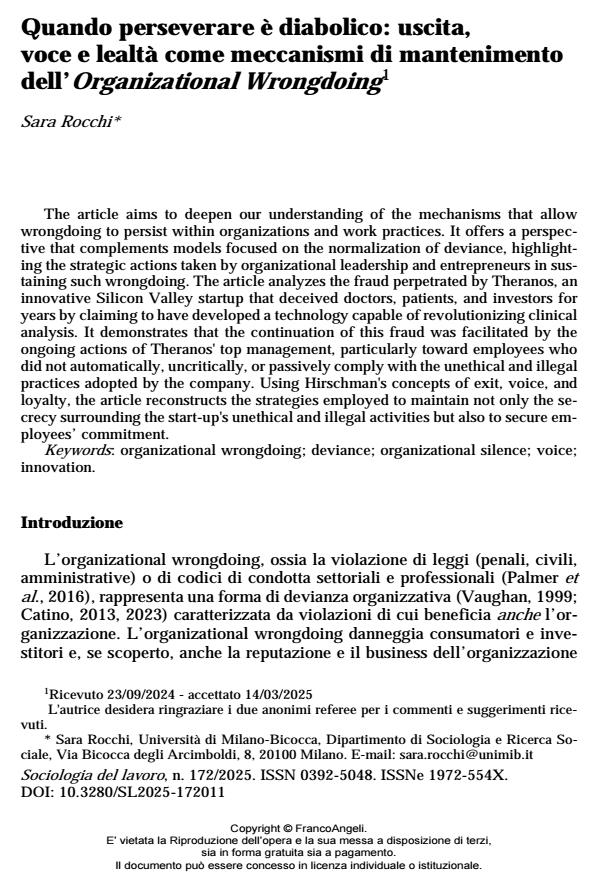When Perseverance is Diabolical: Exit, Voice, and Loyalty as Mechanisms for Sustaining Organizational Wrongdoing
Journal title SOCIOLOGIA DEL LAVORO
Author/s Sara Rocchi
Publishing Year 2025 Issue 2025/172
Language Italian Pages 18 P. 225-242 File size 197 KB
DOI 10.3280/SL2025-172011
DOI is like a bar code for intellectual property: to have more infomation
click here
Below, you can see the article first page
If you want to buy this article in PDF format, you can do it, following the instructions to buy download credits

FrancoAngeli is member of Publishers International Linking Association, Inc (PILA), a not-for-profit association which run the CrossRef service enabling links to and from online scholarly content.
The article aims to deepen our understanding of the mechanisms that allow wrongdoing to persist within organizations and work practices. It offers a perspective that complements models focused on the normalization of deviance, highlighting the strategic actions taken by organizational leadership and entrepreneurs in sustaining such wrongdoing. The article analyzes the fraud perpetrated by Theranos, an innovative Silicon Valley startup that deceived doctors, patients, and investors for years by claiming to have developed a technology capable of revolutionizing clinical analysis. It demonstrates that the continuation of this fraud was facilitated by the ongoing actions of Theranos' top management, particularly toward employees who did not automatically, uncritically, or passively comply with the unethical and illegal practices adopted by the company. Using Hirschman's concepts of exit, voice, and loyalty, the article reconstructs the strategies employed to maintain not only the secrecy surrounding the start-up's unethical and illegal activities but also to secure employees’ commitment.
Keywords: organizational wrongdoing; deviance; organizational silence; voice; innovation.
Sara Rocchi, Quando perseverare è diabolico: uscita, voce e lealtà come meccanismi di mantenimento dell’Organizational Wrongdoing in "SOCIOLOGIA DEL LAVORO " 172/2025, pp 225-242, DOI: 10.3280/SL2025-172011